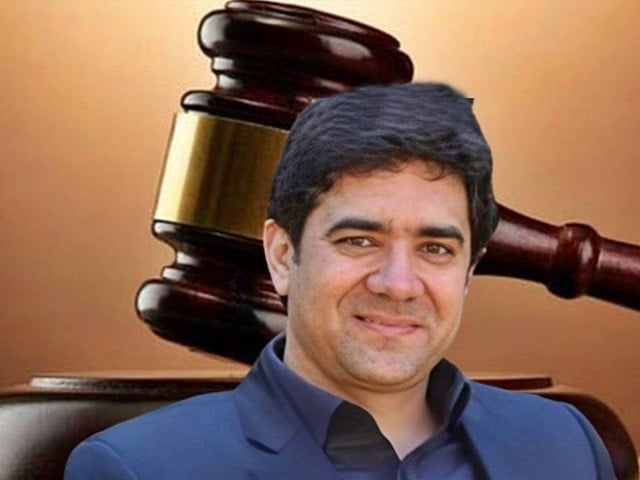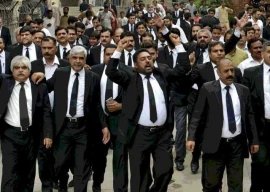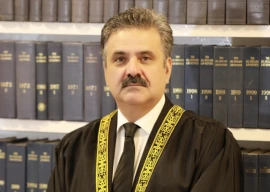
A district and sessions court in Islamabad has denied bail to several Khyber-Pakhtunkhwa (K-P) officials accused of involvement in a social media propaganda campaign against Judge Humayun Dilawar.
The decision comes as authorities increase scrutiny of online activities targeting members of the judiciary.
During the hearing on Saturday, K-P government officials facing pre-arrest bail requests failed to appear in court.
Due to their absence, the court rejected their bail applications.
The bail request of Muhammad Musaddiq Abbasi, special assistant on anti-corruption to the K-P chief minister, was also dismissed.
However, accused Sadiq Anjum appeared with his lawyer and was granted interim bail until November 11, pending a bond of Rs20,000.
Meanwhile, Senior Civil Judge Muhammad Abbas Shah approved the physical remand of Assistant Director Anti-Corruption, Umar Siddiq, who was detained over the alleged propaganda efforts.
The anti-corruption assistant director, Umar Siddiq, was presented in court following his arrest on charges of circulating a video against Judge Dilawar.
The investigating officer argued for a seven-day remand to pursue further arrests linked to the case.
Siddiq defended himself, stating that he had no role in the video’s dissemination and was made a scapegoat.
Judge Shah approved a four-day remand, handing Siddiq over to the Federal Investigation Agency (FIA) for further questioning.
On September 11, a judicial magistrate in Bannu issued arrest warrants for Special Judge FIA Court Islamabad Humayun Dilawar, and others, in a case involving the illegal occupation of government land.
He also happens to be the same judge who convicted Pakistan Tehreek-e-Insaf Founder Imran Khan in the Torshakana reference.
The Anti-Corruption Department obtained arrest warrants for Humayun Dilawar, his brother Sadiq Dilawar, and their father, Dilawar Khan.
According to the case, the accused fraudulently registered the land in their name through a fake court entry and then included it in a housing society, causing the government a loss of millions of rupees.
Muzdaq Abbasi, Special Assistant to the Chief Minister on Anti-Corruption, stated that Judge Humayun Dilawar, his brother, and his father were involved in forgery and land fraud.
The judge had registered property worth Rs2.5 billion in his and his brother's name, for which evidence exists.
Abbasi, in a video message, explained that in 1976, Dilawar Khan had filed a case against Ghulam Asad, also known as Kala, claiming the land in question.
The land, known as "riverbed" or "Mauza land," had regulations preventing any construction within 200 feet under the River Protection Act.



1725967717-0/Untitled-design-(3)1725967717-0-165x106.webp)



1730564373-0/Express-Tribune-Web-(19)1730564373-0-270x192.webp)









COMMENTS
Comments are moderated and generally will be posted if they are on-topic and not abusive.
For more information, please see our Comments FAQ